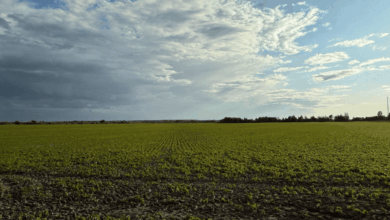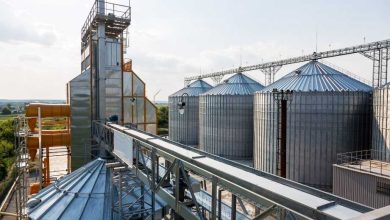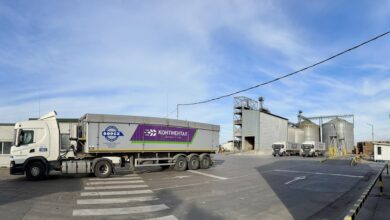
Foreign subsidiaries are no exception. They are working according to Ukrainian laws, and it means they have to find their resources on the Ukrainian market as well. To make the rates lower, equal rules for all should be introduced. This may encourage banks to trust their customers and, vice versa, to encourage customers’ trust in their banks. Today 60 banks out of 180 in Ukraine are working under temporary administration.
I’ve been living in this country for almost 11 years. Total distrust has led to the appearance of shadow economy here. How large is it? I don’t know. Some experts say that 47% of Ukraine’s economy is in the shadow. In agriculture it is reaching up to 15% of all production. That’s why it’s impossible to trust the businesses’ financial reporting. Banks have to use other tools to evaluate risks. Based on my 45-year experience in agriculture, I can conclude that the best way to do it is to arrive at a company and look at its fields and farms, to talk to the owner and in this way to establish the base for trust. All banks which are willing to work with Ukrainian agribusiness have to create their own tools of evaluating how well a business is working. Only then they will be able to operate profitably.
I’d like to note that the first source of financing should be agricultural producers themselves. A bank should be the second provider of financial resources. For example, a company is handling 1,500 hectares of land which is a bit less than a collective farm used to have. If they are working properly they will spend around $500 per hectare and harvest 6–7 tons of corn. With $200 per ton from a hectare the company will earn $1200 which means that its total margin is more than $600 from a hectare. This amount is enough to make the next sowing and earn some more. This means that they do not need additional financing from a bank. The only reason to ask for a loan is when a company wants to increase yields or when it is below the level to compensate the sowing and to prepay for the following season. A friend of mine, who never takes any bank loans, told me once: “The best client for a bank is a person who doesn’t require any resources”. Why? Because my friend knows how to make money. He doesn’t spend more than needed on new technology, good seeds, plant protection products and fertilizers. At the same time he reaps up to 10 tons of corn from a hectare, up to 6 tons of grain and up to 4 tons of rape. He hasn’t got any problems with financing. What is more, he can generate money and increase capitalization.
In agriculture, the major costs come from the purchase of seeds, fertilizers, plant protection products. That’s why, to acquire these things, banks in Ukraine have developed financing programs, so called resource-free financing tools, the demand for which is continuously growing. I’m talking about bill avalization. This service allows an agrarian to get all necessary materials for sowing with a payment delay until autumn, when the bank is ensuring all terms of delay for the producer. This service is much cheaper than standard loaning. Partners in this type of financing are the world’s leading producers of plant protection products, fertilizers and seeds. That’s why agrarians get double benefit: they optimize their costs and buy high quality products.
Another alternative tool for financing is promissory notes — a kind of bill or documentary credit. For example, a client has to repay the loan at the end of October. But due to some bad weather conditions he has to postpone harvesting and is unable to pay off to the bank on time. We can provide him with an overdraft for two to three weeks and he’ll be able to repay the alternative loan (promissory note) in time. At the same time I’m against subsidies in agriculture. The alternative tools of financing are able to decrease interest rates for financial resources down to the level below inflation. So there are no reasons to pay subsidies to farmers — they get those subsidies from the market.




